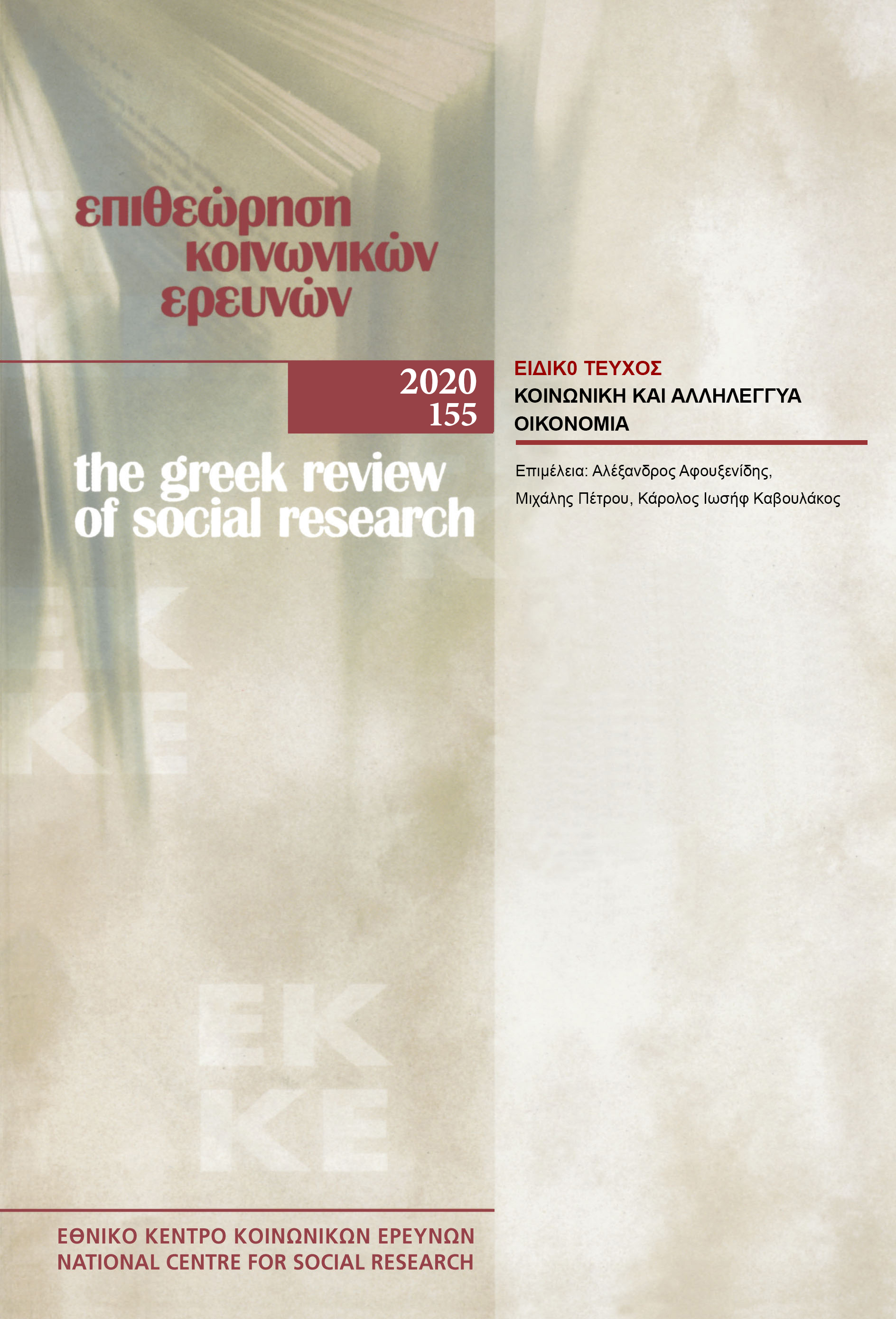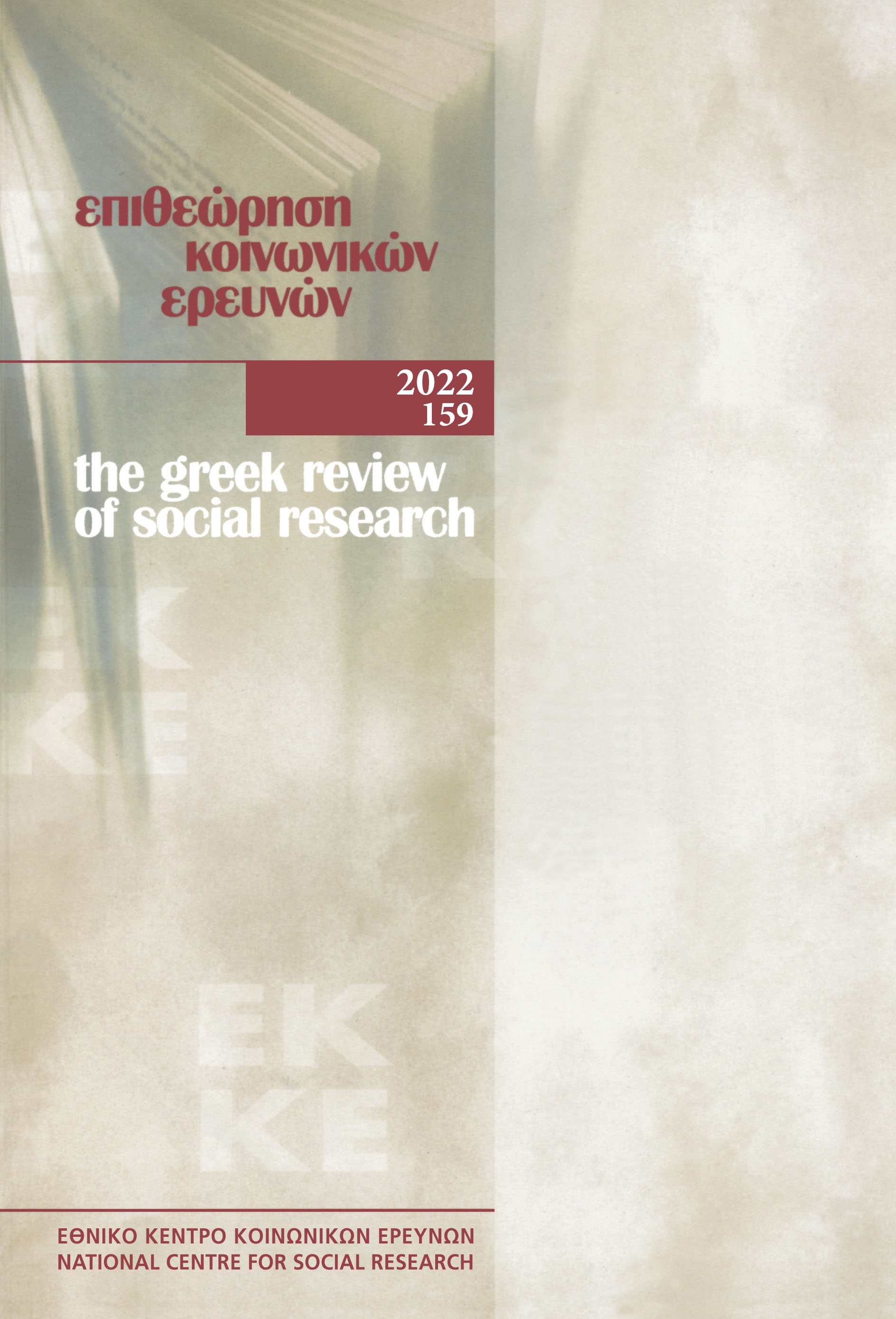Can cultural economy be social? Discussing about the rural heritage of Greece

Περίληψη
Μπορεί η πολιτιστική οικονομία να είναι και κοινωνική;Συζητώντας για την αγροτική πολιτιστική κληρονομιά της Ελλάδας
Το άρθρο εξετάζει το τοπίο της πολιτιστικής διαχείρισης στην Ελλάδα, όπως αυτό διαμορφώνεται από κοινωνικούς, πολιτικούς και οικονομικούς παράγοντες. Σχολιάζει την αναδυόμενη λογική της κρατικής πολιτικής, η οποία εναρμονίζεται όλο και περισσότερο με τα νεοφιλελεύθερα προγράμματα των οικονομιών δυτικού τύπου. Δεδομένων των προεκτάσεων για το μέλλον της πολιτιστικής κληρονομιάς, το παράδειγμα των κοινών παρουσιάζεται ως εναλλακτικό παράδειγμα για την προστασία και την ανάδειξή της. Όπως υποστηρίζεται, το μοντέλο των κοινών, μέσω των κοινοτήτων και των αρχών της κοινωνικής και αλληλέγγυας οικονομίας, αποτελεί βιώσιμη επιλογή που χρήζει περαιτέρω διερεύνησης. Σε αυτό το πλαίσιο, αναλύεται η μελέτη περίπτωσης της αγροτικής κληρονομιάς της Νάξου.
Λεπτομέρειες άρθρου
- Πώς να δημιουργήσετε Αναφορές
-
Lekakis, S., & Dragouni, M. (2020). Can cultural economy be social? Discussing about the rural heritage of Greece. Επιθεώρηση Κοινωνικών Ερευνών, 155, 99–120. https://doi.org/10.12681/grsr.24827
- Ενότητα
- Άρθρα

Αυτή η εργασία είναι αδειοδοτημένη υπό το CC Αναφορά Δημιουργού – Μη Εμπορική Χρήση 4.0.
Οι συγγραφείς των άρθρων που δημοσιεύονται στην Επιθεώρηση Κοινωνικών Ερευνών διατηρούν τα δικαιώματα πνευματικής ιδιοκτησίας επί των άρθρων τους, δίνοντας στο περιοδικό το δικαίωμα της πρώτης δημοσίευσης. Άρθρα που δημοσιεύονται στην Επιθεώρηση Κοινωνικών Ερευνών διατίθενται με άδεια Creative Commons 4.0 και σύμφωνα με την άδεια μπορούν να χρησιμοποιούνται ελεύθερα, με αναφορά στο/στη συγγραφέα και στην πρώτη δημοσίευση για μη κερδοσκοπικούς σκοπούς.
Το Εθνικό Κέντρο Κοινωνικών Ερευνών διατηρεί το δικαίωμα να δημοσιεύει, να αναπαραγάγει, να παρουσιάζει στο κοινό, να διανέμει και χρησιμοποιεί άρθρα που δημοσιεύονται στην Επιθεώρηση Κοινωνικών Ερευνών σε οποιοδήποτε μέσο και μορφή είτε μεμονωμένα είτε ως μέρη συλλογικών έργων, για όλο τον χρόνο διάρκειας προστασίας της πνευματικής ιδιοκτησίας και για όλες τις χώρες του κόσμου. Αυτό περιλαμβάνει ενδεικτικά και όχι αποκλειστικά το δικαίωμα δημοσίευσης των άρθρων σε τεύχη της Επιθεώρησης Κοινωνικών Ερευνών, αναπαραγωγής και διανομής μεμονωμένων αντιγράφων των άρθρων, αναπαραγωγής ολόκληρων των άρθρων σε άλλη έκδοση του Εθνικού Κέντρου Κοινωνικών Ερευνών, καθώς και αναπαραγωγής και διανομής των άρθρων ή περίληψης αυτών με χρήση πληροφορικού συστήματος αποθετηρίου.



